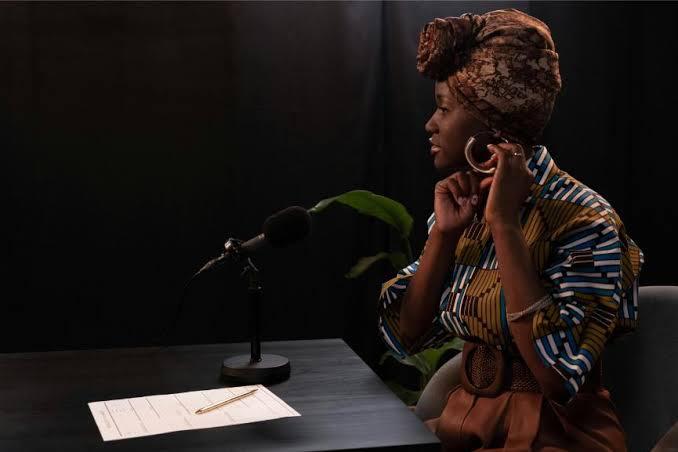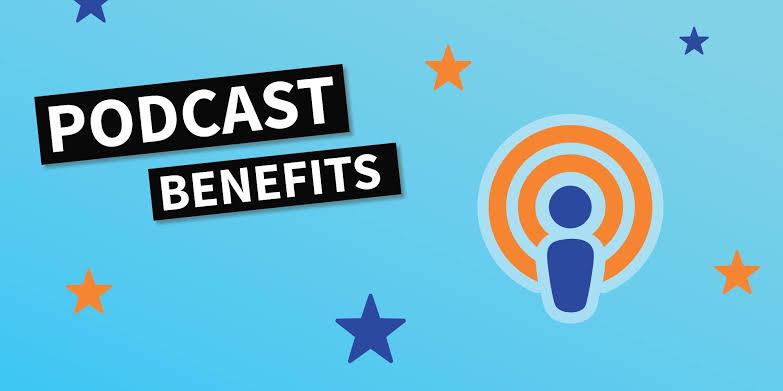Bros and sis, podcasting is currently exploding all over Nigeria and the world in whole, which is unexpected given that the medium’s name dates back to the iPod era. Despite having been around for two decades, podcast listenership has more than doubled in just five years, with a significant percentage of people residing in Anambra tuning in regularly.
And, yes, the money has followed! Podcast advertising is thriving because it turns out that listeners don’t mind ads when they come from hosts they love and trust—a rare occurrence in digital media where most people would rather clean their keyboard with a toothpick than suffer through another ad break.
There has never been a better time to launch a podcast. But here’s something most guides won’t tell you: it won’t be easy. If you want to create something that people want to listen to, prepare yourself for a lot of hard work, inevitable frustrations, and possibly some awkward early episodes that you’ll want to hide from the internet forever.
This comprehensive, step-by-step guide cuts through the fluff to show you exactly what to consider before starting your podcast in Anambra, from planning and recording to publishing and expanding.
Key Takeaways
- Podcasting is booming globally and in Anambra, so, now’s a great time to start.
- Starting a podcast in Anambra requires you to Pick a clear topic, name, and format that reflect your passion and connect with your audience.
- Craft a strong description, create simple cover art, and add theme music to build your podcast brand.
- Start with basic gear; even a phone and free editing software can work.
- Record and edit with care to ensure good sound quality and flow.
- Choose a reliable hosting platform like Spotify for Podcasters to distribute your episodes.
- Promote consistently through social media, community engagement, and collaborations.
What Is a Podcast and How Does it Work?

Podcasting is a digital audio medium in which episodes can be downloaded or streamed online. Episodes are typically distributed through RSS feeds, making it easy for listeners to subscribe and stay updated. Unlike traditional radio, podcasts allow creators to explore niche topics and publish on a flexible schedules.
Many shows focus on news or storytelling, while others feature interviews or personal chats. This variety enables people to find content that resonates with their interests at any moment. According to Podcast statistics for 2023, listener numbers continue climbing exponentially.
What to Consider Before Starting Your Podcast in Anambra

Now let’s get into the details of starting a podcast in Anambra. Starting a podcast might seem difficult, but it doesn’t have to be. So before you hit record, tick off these ten steps, so as to launch a successful podcast that connects with your audience and stands out in the crowded podcasting world.
#1. You Need a Topic
The first step in starting a podcast is deciding on a topic. This may sound easy enough, yet it is one of the most important decisions you will make. Your podcast topic should be something which you are genuinely passionate and well-versed with. This passion will keep you motivated and engaged, while your expertise will ensure that your audience finds your content valuable. Think about what interests you—whether it’s sports, technology, personal development, pop culture, or discussing Nigeria’s problems.
When choosing a topic, you should also consider your target audience. What are their interests? What issues can you help them resolve? The more specific your niche definition, the better. For example, instead of a general “pop culture podcast,” you could focus on Nigerian pop culture through the lenses of artists.
#2. Get a Name, Direction, and Format
After you’ve picked your topic, you’ll need to decide on a name, direction, and format for your podcast. Your podcast name should be unique, catchy, and relevant to your topic. Avoid using elaborate names that are difficult to spell or pronounce. Give your podcast a name that reflects its essence and will immediately resonate with potential listeners. It’s also a good idea to conduct a quick search to ensure that your podcast name hasn’t already been taken.
In the same vein, determine the general direction of your podcast. Will it be educational, entertaining, or a combination of the two? Will your focus be on interviews, storytelling, or discussions? Knowing the direction of your podcast will help you stay consistent and on track, ensuring that each episode fits your overall vision.
The format of your podcast is equally important as the content. Will it be an interview, narrative, roundtable discussion, or a monologue? Will the episodes be 20 minutes or an hour long? Consistency in format helps build a devoted following, as listeners will know what to expect each time they tune in. Some podcasts thrive on short, daily episodes, while others might decide on more in-depth weekly talks. Choose a format that is suitable for your style and your audience’s preferences.
#3. Create an Intriguing Podcast Description
Your podcast description is the first thing potential listeners will read, so it should be intriguing and informative. A well-written description should clarify what your podcast is about, who it is intended for, and what listeners can expect in each episode. This is your opportunity to pique people’s interest, make the most of it!!
To improve searchability, keep your write-up concise but descriptive, and add relevant keywords to your niche. A solid description can make the difference between a listener hitting play or going on to the next podcast.
#4. Create a Cover Art and Theme Music
Visual and audio branding are important factors in attracting and retaining listeners. Your cover image is the first thing audiences will notice, so it should be eye-catching and relevant to your podcast’s theme. Simple designs are typically the best—use simple fonts, bold colours, and imagery that express your podcast’s content.
Your theme music is equally significant. It sets the tone for your podcast and contributes to creating a recognizable brand identity. It doesn’t have to be something big, so don’t overthink it. These elements are part of your brand’s first impression, so take the time to get them right.
#5. Set Up Equipment
You don’t have to spend a fortune or break your back to set up your podcast equipment, but investing in a few key items can significantly improve sound quality. Here’s everything you’ll need:
Microphone: A high-quality microphone is necessary for clear audio. You can start with a USB microphone, such as the Blue Yeti, then upgrade to an XLR microphone as your podcast grows. You can actually also start with your phone. The average iPhone has an excellent microphone. The microphone you use will determine how professional your podcast sounds.
Recording Software: Popular and understandable recording and editing software choices include Audacity (free) and Adobe Audition (paid). Even beginners can easily learn how to record a podcast using these tools, it’s that easy to navigate!
As your podcast grows, you can get additional items such as headphones. Investing in a pair of closed-back headphones to monitor your recordings will help you avoid audio bleed and detect any issues that might otherwise go undetected.
You can also purchase a pop filter to eliminate plosive sounds (such as “p” and “b”) and a boom arm to keep your microphone in place, minimizing desk noise and making your setup more ergonomic.
#6. Now, Record Your First Episode
Now that you’ve got everything set up, it’s time to record your first episode. This is where your podcast finally comes to life. Find a quiet place to avoid background noise and distractions. If you’re recording remotely, platforms like Zoom or Otter are great options for capturing high-quality audio with guests in different locations.
Knowing how to record a podcast remotely is very important if you plan to have guests from all over the world. Before hitting record, plan out your episode—whether it’s an interview or a solo show, an outline will help you remain on track.
#7. Edit Your First Episode
Editing is where the magic happens. It’s also a little challenging for a newbie. The purpose of editing is to fix mistakes, add intro and outro music, and ensure a fluid flow throughout the program. Good editing can make the difference between a professional-sounding podcast and one that listeners will skip. Take your time with editing; polished episodes are more likely to keep listeners interested and returning for more. Before proceeding, seek feedback from your friends and colleagues.
#8. Set Up a Hosting Platform
Your podcast needs a home, which is where a hosting platform comes in. Hosting platforms store and transmit audio files to podcast directories such as Apple Podcasts, Spotify, and Google Podcasts.
Some popular podcast hosting systems are:
Buzzsprout: User-friendly with excellent analytics.
Podbean: provides monetization options and unlimited storage.
When selecting a platform, keep your needs and budget in mind. Some platforms have free plans, making it easier for you to learn how to start a podcast without cost.
A competent hosting platform will also provide you with useful insights into your audience’s behaviour, allowing you to fine-tune your content strategy. Spotify, formerly Anchor, is an excellent place to start at this stage.
#9. Launch Your Podcast
You’re ready to launch your podcast now that you’ve completed the setup process. This is a thrilling moment, but it’s important to have a launch strategy in place. Promote your podcast on social media, reach out friends and family, and submit it to directories. Tease your podcast by sharing snippets, quotes, and the like. The first few episodes are important for building momentum, so consider posting two or three episodes simultaneously to provide new listeners with extra content to enjoy. A successful debut can pave the way for your podcast’s success and attract your first wave of listeners.
#10. Continuous Promotion
Podcasting does not end with the launch; you must continue to promote your show in order to grow your audience. Here are a few strategies for continuous promotions:
- Share new episodes, quips, and behind-the-scenes content on Instagram, Twitter, and Facebook. Use these platforms to interact with your audience and urge them to share your podcast to others.
- Appear on other podcasts in your niche to reach a larger audience, or in videos. Cross-promotion with other podcasters can help your podcast reach new listeners who are already interested in your topic.
- Respond to listener feedback and consider building a community around your podcast. Building a community, whether through a Facebook group, Spotify’s comment section, or a mailing list, can help you connect with fans and keep them coming back.
Promotion is essential for sustaining and growing your podcast over time. Consistently releasing new episodes and engaging with your audience will help you build a devoted listener following. Always keep in mind, podcasting is a long game.
Benefits of starting a podcast

1. Podcasting broadens your reach
One of the most significant advantages of podcasting is its flexibility. Unlike video content or blogs, which require your complete attention, podcasts can be consumed while multitasking. Whether your listeners are driving, exercising, cooking, or working, they can listen to your podcast without interrupting their activities. This accessibility lets you reach a larger audience who may not have time to sit down and read or watch content. Podcasts are available on a variety of platforms, including Apple Podcasts, Spotify, and Google Podcasts, so your content can reach listeners all over the world, well beyond your immediate circle.
2. Podcasting allows you to connect with your audience
Podcasting allows you to build a more intimate connection with your audience. Unlike written content, where tone can be misunderstood and misinterpreted, podcasts allow your voice, tone, and personality to show through. This auditory connection can foster a sense of intimacy, making listeners feel they’re having a one-on-one conversation with you. Over time, this can result in a dedicated audience who looks forward to hearing from you on a regular basis.
3. Podcasting provides you with monetization opportunities
Podcasts can be a valuable source of income if approached correctly. As your audience grows, you can attract sponsorships and ads that are relevant to your listeners’ interests. Because of the strong bond that hosts have with their viewers, brands are increasingly turning to podcasts for marketing purposes. You can also monetize by offering premium content, such as exclusive episodes, early access, or ad-free experiences for a monthly charge. If you provide great content that resonates with your audience, monetization can be a natural next step in your podcasting journey.
4. Podcasting establishes your authority in your field
If you possess expertise in a particular field, a podcast can help you establish yourself as a thought leader. Regularly providing unique insights, industry trends, and personal experiences can position you as an authority in your field. This credibility can lead to opportunities such as speaking engagements, consultancy gigs, and collaborations with other experts. Furthermore, being viewed as an expert can boost your influence, allowing you to influence your audience’s opinions and decisions. A well-researched and insightful podcast can become a go-to resource for your audience, reinforcing your position as a leader in your field.
5. Podcasting has a low entry barrier
Starting a podcast is easier than ever, making it an excellent medium for anyone with a message to convey. Anyone can start a podcast; there is no need for a large budget or sophisticated equipment—just a good idea, a decent microphone, and some basic recording software. Many platforms, like Spotify, even provide free hosting services, allowing you to distribute your podcast with no upfront costs. The ease of entry allows you to focus on content creation rather than technical challenges. As your podcast grows, you can gradually upgrade to better equipment and more advanced tools to improve production quality.
How Much Will it Cost to Start a Podcast?
You can start a podcast for free with basic equipment and free hosting, or you can spend hundreds or thousands of dollars on professional equipment, studio space, and premium hosting. The basic costs include a microphone, headphones, and hosting services.
How Can I Start a Podcast With no Experience?
To start a podcast with no prior experience, you need to do some research and select a niche or topic which you are passionate about. Then, invest in basic recording equipment, get familiar with audio recording and editing, and select a hosting platform to broadcast your podcast content. Many successful podcasters began as a complete beginners, so don’t let a lack of experience hold you back.
How Do Podcasters Get Paid?
Yes, podcasts make money. Sponsors, advertisements, listener donations, merchandise sales, and premium content subscriptions all contribute to this income. Most podcasts do not generate a lot of money, especially in their early stages, and therefore require a large number of listeners to monetise.
